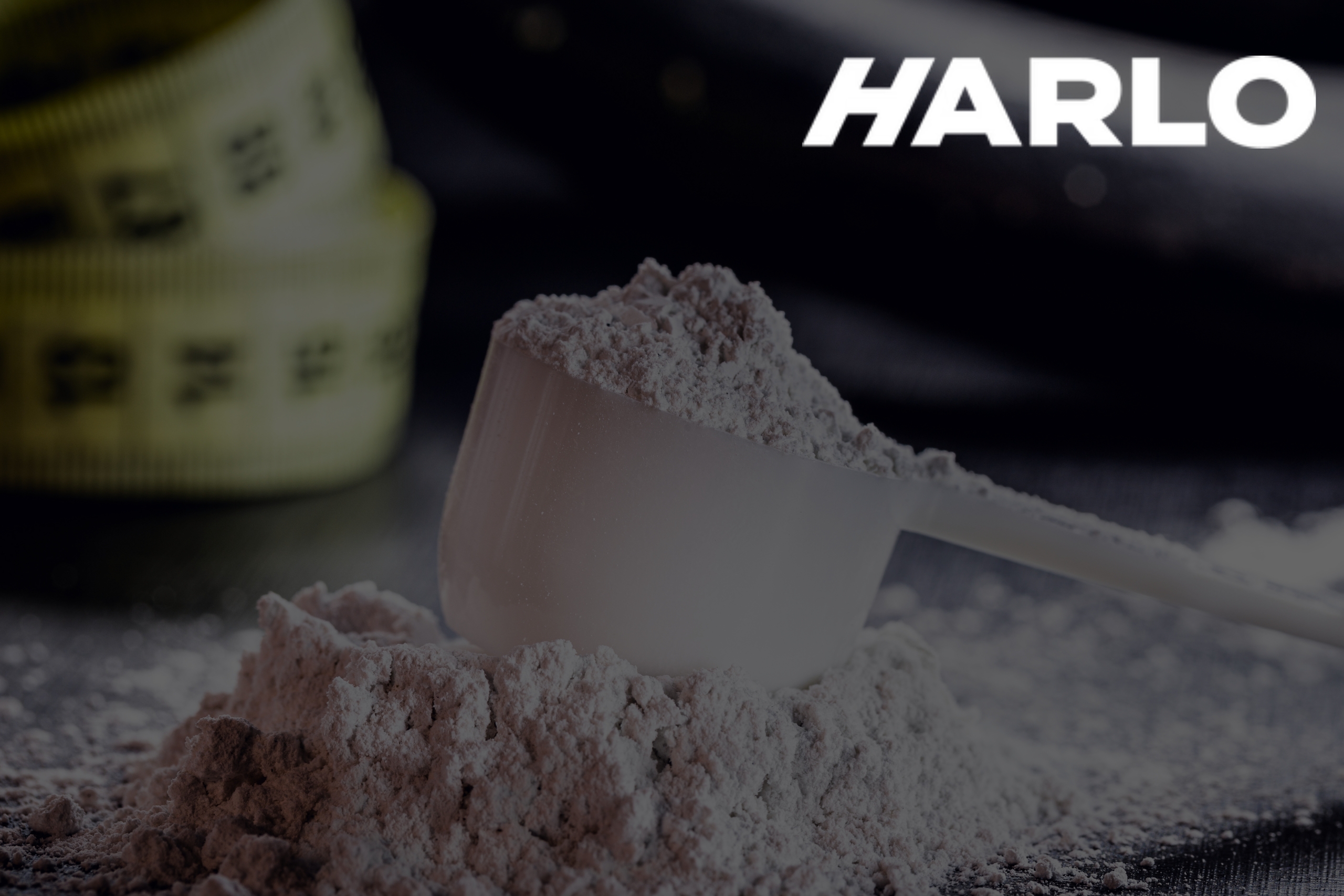Collagen is a key protein if the body is to run as it should. Important component of connective tissues, it provides form, strength, and flexibility to skin, bones, muscles, tendons, and ligaments. Collagen benefits your joints, skin, and hair. As you might expect, collagen has gotten a lot of attention lately because it is so important for keeping skin looking young and healthy, as well as for boosting general health.
With the increasing popularity of collagen supplements, more and more people are seeking ways to incorporate this essential protein into their daily routines. Consuming collagen supplements is believed to boost the body’s collagen production, resulting in smoother, firmer skin, stronger bones, and improved joint flexibility. In addition, collagen vitamins may help ease joint pain and make your digestive system healthy. Because of this, a lot of collagen goods, like pills, tablets, and even useful foods and drinks, have hit the market to meet the needs of people who want to use collagen’s many benefits.
Benefits of Collagen
Collagen is a protein that gives our bodies’ skin, bones, and muscles shape. Collagen production in the body naturally decreases with age. This makes wrinkles, stiff joints, and weak bones show up. However, adding collagen to our food or taking collagen pills can have many health benefits. First, collagen has been shown to make skin more stretchy and moist, which makes fine lines and wrinkles look less noticeable.
In addition, collagen pills may improve joint health by lowering inflammation and helping cartilage grow back. Collagen consumption has also been linked to faster hair and nail growth as well as better gut health. In addition, collagen can help muscles heal and may even help them gain muscle mass. This makes it especially helpful for sports and people who work out regularly. Because it has so many uses, collagen is an important protein that helps with health and well-being all around.
Improved Skin Elasticity
Collagen is a protein that our bodies make in large amounts. It helps keep skin smooth and young-looking by making it more pliable. Our bodies make less collagen as we get older, which makes our skin lose its suppleness and get lines and slump. But studies have shown that using collagen in our skin care routines can help fight these signs of ageing.
Collagen does its magic by giving the skin’s cells structure, which keeps them tight and flexible. It also encourages the production of elastin, which is another protein that keeps skin flexible. By increasing collagen levels, skin becomes stronger and better able to hold on to water, making it look fuller and younger.
There have been many studies that show collagen is good for skin health. For example, a study in the Journal of Cosmetic Dermatology found that people whose skin was fed collagen peptides every day for eight weeks had better skin flexibility, moisture, and roughness than people whose skin wasn’t fed collagen. In a different study, the University of Kiel in Germany found that women whose skin was supplemented with collagen for eight weeks had much better flexibility and moisture levels than women who were not supplemented.
Joint Health
Joint health is important for keeping your movement and lowering pain, especially for sports and people with arthritis. Collagen is a very important part of knee health.
Collagen is the body’s most common protein and is very important for how joints work. It is the main part of the connective tissues that hold joints together and give them shape. The joints are shielded from contact and rubbing by collagen, which also serves as a padding and buffer. It also helps joints move smoothly by encouraging the production of synovial fluid, which coats the joints with oil and lowers friction.
Supplementing with collagen can help players keep their joints healthy and boost their efficiency. Active lifestyles can cause joint pain and accidents because they put stress and force on joints all the time. Collagen helps keep the joints strong and lowers the risk of getting hurt. Collagen also helps broken joint cells fix and repair themselves, which speeds up the recovery process after a lot of training or competition.
People who have gout can also benefit from taking collagen supplements. When you have arthritis, your joints become inflamed and wear out over time. By encouraging cartilage renewal and lowering inflammation in the joints, collagen aids in reducing the pain and stiffness that come with arthritis.
Hair Growth
Collagen is an essential protein that helps keep many organs in our bodies healthy and strong, including our hair. The amount and quantity of collagen have a big effect on hair growth and strength.
Collagen gives the hair cells in the scalp’s skin layer structure support. Hair that is strong and thick grows best when the skin has a good amount of collagen. There is an important part of the extracellular matrix that makes it possible for nutrients and waste to move from the bloodstream to the hair follicles.
Collagen can also keep hair from breaking and falling out. It makes the hair strands more flexible, which makes them less likely to break or get damaged from everyday styling, the environment, and other stresses. Collagen keeps hair strong by keeping the structure of the hair fibre. This makes hair less likely to break, frizz, and thin.
In addition, collagen helps the body make keratin, which is another protein that is an important part of hair’s structure. It is keratin that gives hair its general strength, flexibility, and shine. Collagen helps make and keep keratin in good shape, which helps hair grow and stay strong.
Muscle Recovery
Collagen is a protein that is found in large amounts in the body. It is very important for muscle repair and healing after exercise. When we work out, our muscles are stressed and tiny damage happens, which makes them sore and swollen. Collagen comes in to help muscles heal and get back to full strength.
One important thing about collagen is that it helps tissues keep their shape. In order for our muscles to heal, collagen fibres create a framework that helps new muscle cells grow and stops too much scar tissue from forming. Additionally, collagen helps muscles become stronger and more stable by forming a bridge between their fibres.
Collagen also helps build lean muscle bulk because it contains a lot of amino acids. Proteins are made up of amino acids, and collagen has a lot of proline and glycine, which are needed to build muscles. These amino acids help the body make creatine, which is an important chemical for muscle growth and movement.
Including collagen in our food can help our muscles heal and help us gain lean muscle mass. Eating collagen-rich foods like bone soup or taking collagen peptides as a supplement can give your body the amino acids it needs to fix itself. Taking collagen supplements may also help lower joint pain caused by exercise, which will help muscles heal even more after a workout.
Gut Health
The health of many organs in the body, including the gut, depends heavily on the protein collagen. Gut health is the general health of the gut system, which is in charge of absorbing nutrients and getting rid of waste.
One of the main ways that collagen is good for gut health is that it makes digestion better. The production of stomach acid and digestive enzymes is supported by the amino acids glycine and proline, which are found in collagen. Having enough stomach acid and enzymes is important for breaking down food bits so that nutrients can be absorbed and gut pain is kept to a minimum.
Collagen can also help lower inflammation in the gut. Inflammation is a normal part of the immune system, but if it lasts for a long time, it can damage the lining of the gut. Collagen’s amino acids help to heal and fix the lining of the gut by lowering inflammation and speeding up the healing process.
Furthermore, collagen can help the growth of good bacteria in the gut. These bacteria are very important for keeping the gut microbiome healthy, which is important for digestive health in general. A healthy gut microbiome helps keep digestion and immune system function in check, and collagen can help good bacteria grow and become more diverse.
Bone Health
Collagen is an important structure protein that our bodies need to stay healthy and strong. It also helps keep bones from breaking. The protein structure in bones is mostly made up of collagen fibres, which give bones their strength, flexibility, and ability to heal without breaking.
Collagen is very important for bone health because it creates a framework for mineralised crystals, mostly calcium and phosphate. This process makes a thick, hard structure that makes bones stiff and able to handle stress from outside forces. When bones don’t have enough collagen, they become weak, brittle, and more likely to break.
As we get older, our bodies naturally make less collagen, which makes our bones less dense. This loss of collagen changes the structure of bones, making them more likely to break. This can lead to osteoporosis, a disease where bones become weak and porous. Osteoporosis can lead to broken bones that make it hard to move and a lower quality of life overall.
Making collagen and eating a healthy, collagen-rich food are both important for keeping your bones healthy. Consuming foods high in amino acids like proline and glycine, as well as collagen-boosting nutrients like vitamin C, zinc, and copper, can help the body make more collagen. Berry fruits, fresh veggies, fish, lean meats, nuts, and beans are all good sources of these nutrients.
It’s also important to do a lot of exercise every day, especially weight-bearing tasks like walking, running, and climbing. By putting bones through mechanical stress, exercise helps keep bone mass high and increases collagen production.
Heart Health
Collagen is a protein that our bodies make in large amounts. It has gotten more attention because it may help keep your heart healthy. Collagen can help loosen up arteries, which is a typical problem with getting older and some heart conditions. This makes blood move better, which is good for heart health in the long run.
Collagen is an important part of keeping the structure of our blood arteries strong. Our bodies make less collagen as we get older, which makes our arteries stiff. Collagen addition has shown promise in enhancing artery flexibility, which makes blood vessels less stiff. In turn, this is very bad for heart health because stiff arteries can stop blood flow and make the heart work harder.
A study in the Journal of Atherosclerosis and Thrombosis found that taking collagen supplements for six months made arteries less stiff, as shown by a drop in the arterial stiffness index. A different study on elderly women, which was published in the British Journal of Nutrition, also found that eating collagen made arteries less stiff.
Collagen can also help heart health by making blood move better. Collagen makes blood vessels more flexible, which helps blood flow easily through arteries to feed the heart and other important organs. In turn, this may help lower the risk of heart diseases like high blood pressure and cholesterol, as well as the chance of having problems with the heart.
Managing Your Weight
Collagen is an important protein that our bodies need to work properly. It helps us feel full and lose weight. Collagen is an important part of our connective tissues, which means it helps keep our skin, muscles, bones, and joints healthy. But its benefits go beyond just helping you physically.
One of the main reasons people gain weight is that they eat too much. This is where collagen comes in. Eating foods that are high in collagen or taking supplements with collagen peptides can help us feel full and cut down on our hunger. This is because collagen has a special mix of amino acids, including lots of glycine, proline, and glutamine, which make hormones that tell the brain it’s full.
In addition, collagen helps you lose weight by keeping your body healthy. Our bodies naturally make less collagen as we get older. This can cause us to lose muscle strength and have a slower metabolism. Collagen supplements can help us keep and gain lean muscle mass, which in turn speeds up our metabolism and makes it easier to burn calories.
For another thing, collagen helps keep blood sugar levels steady. It’s harder to control your weight when your blood sugar levels go up and then down. This is because cravings and hunger get worse. Collagen helps keep blood sugar levels steady, which means you have fewer cravings, feel fuller, and can control your weight better.
Overall Well-being
Collagen is very important for general health because it supports many body processes and encourages a healthy lifestyle. Collagen, which is the most common protein in our bodies, keeps our connective parts, like skin, bones, ligaments, and tendons, strong and healthy.
One of the best things about collagen is that it can help you feel more energetic. Collagen peptides contain amino acids that are needed for muscle growth and repair. Collagen helps fight tiredness and improve physical performance by making muscles stronger and more vital. Collagen also helps the body’s metabolism by turning food into energy.
Collagen also improves the quality of sleep, which is another way it helps with general health. The amino acid glycine is found in collagen and is known to calm the nervous system. People can fall asleep faster and sleep better with glycine because it makes them feel calmer and more relaxed. Good sleep is important for many areas of health, such as brain function, immune system health, and mental balance.
In addition, collagen can help improve your mood. Certain amino acids in collagen, especially tryptophan, are needed to make serotonin, a chemical that controls mood and makes people feel good about themselves and happy. Taking collagen supplements has been linked to fewer signs of worry and sadness, which can help improve your general mental health and happiness.

Conclusion
Collagen pills are becoming more famous because they are good for your skin, joints, hair, muscles, gut, bones, heart health, weight control, and general health. When you use collagen every day, it can help you look and feel great from the inside out. You can use them to make your skin more flexible, ease joint pain, encourage hair growth, speed up muscle healing, support gut health, keep bones strong, improve heart health, control your weight, or improve your general health. Collagen pills are a safe and efficient way to meet your body’s nutritional requirements. With so many health benefits, it’s no surprise that collagen is so popular among people who want to improve their health and well-being. You might want to add collagen pills to your daily routine and see for yourself how they change things.



